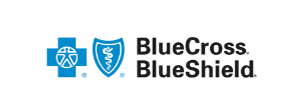Depression Treatment Center in Nashville
Addressing depression as a part of an addiction treatment plan is critical because depression tends to co-occur with an addiction disorder. When dealing with depression, individuals are more likely to relapse, not complete a treatment program, and have a higher risk of suicidal ideation.
However, by incorporating a program for depression treatment at our depression treatment center in Nashville, Tennessee, Southeast Addiction Center can help individuals achieve overall wellness. This is accomplished through therapy, medication management, support groups, and aftercare support.
Dual Diagnosis Depression Treatment
Depression is a mental illness, and when treating depression and addiction, co-occurring disorders, the treatment plan is considered a dual diagnosis. We feel specific factors impact treatment, and the initial one is determining which came first: mental health condition or substance abuse. Determining a treatment plan that will lead to long-term recovery relies on understanding the relationship between depression and substances for each individual.
At Southeast Addiction Center, our dual diagnosis treatment center in Nashville, Tennessee, offers treatment plans to help you or a loved one recover in a comfortable and professional healthcare environment.
Southeast Addiction Center’s Comprehensive Treatment Approach
To meet our client’s needs, we offer various treatment services customized to each client’s specific needs. Because our programs are flexible and individualized, we can reach all who need support, regardless of their home or work situation.
- Partial Hospitalization Program (PHP): The highest level of care we offer is PHP. This program requires that our clients spend at least 30 hours a week in our depression treatment program and return home for the rest of their day. We designed this program to help clients who need more support than an outpatient program, but not those requiring 24/7 care.
- Intensive Outpatient Program (IOP): IOP allows clients to continue working, attending school, or caring for their families while receiving several hours of care each week. The course of IOP treatment varies for each patient but could include individual therapy, family therapy, group therapy, holistic therapies, and other behavioral health treatment options.
- Outpatient Treatment: With this level of care, our clients receive effective treatment at a cadence that meets their needs. While we do not recommend this as a first step to recovery, we do know that outpatient care is an excellent form of maintaining your sobriety long-term.
- Sober Living: Our clients have access to sober living facilities, allowing them to live on-site with others experiencing the same journey as they are.
- Medical Detox: We offer medically-assisted detoxification services to clients who require it as a first step in their treatment program. Our detox treatment aims to help clients overcome their dependence on substances.
- Integrated Care: Our integrated care model involves all aspects of our client’s care and is led by a team of nurses, therapists, and other clinicians. Working together, we combine care and preventive health to form individualized treatments.
Expert Mental Health Care and Depression Treatment Center in Nashville, Tennessee
When you work with our team at Southeast Addiction Center, you will feel a part of a supportive community.
Our primary goal is to help our clients recover and maintain a healthy lifestyle. We designed our evidence-based programs to deliver results that lead to long-term coping strategies and positive choices. We have dedicated our careers to helping others live out their true potential, free from mental health issues and substance abuse disorders.

Our Evidence-Based Approach to Depression Treatment
Southeast Addiction Center offers several evidence-based treatment approaches for treating depression.
Our services include the following:
- Talk Therapy, a form of cognitive behavioral therapy, involves speaking one-on-one with one of our therapists to explore thoughts, feelings, and behaviors contributing to depression. Our clients work collaboratively with their therapists to develop coping strategies and make positive changes during these sessions.
- Group Therapy comprises clients with commonalities and allows them to participate in group sessions to address everyday struggles.
- EMDR treats trauma and other challenging life experiences. Our clients work with their therapists to focus on the traumatizing experience while engaging in eye movement to desensitize the feelings attached to the experience.
- Dialectical Behavioral Therapy (DBT) helps clients learn skills to manage their emotions and improve social relationships. When participating in DBT, our clients will attend individual and group therapy sessions focusing on mindfulness, tolerance, and harnessing emotions.
Each service is tailored to address the unique needs of individuals with co-occurring depression and addiction.
Holistic Approach to Depression Treatment in Nashville, TN
At Southeast Addiction Center, we offer a holistic approach to treating depression. Holistic Therapy treats the whole person, from physical and emotional to spiritual well-being. Our clients can experience massage, yoga, meditation, creative expression, and movement during holistic therapy treatment.
Individualized Care Plans at Southeast Addiction Center
Our individualized therapy focuses on each client’s unique needs. We aim to understand the specific concerns of each client, and from there, our therapists develop specialized goals for each individual. Working collaboratively with each client, we can develop a plan beyond a standard model and create a personable and actionable set of guidelines.
Because depression affects each person differently, a customized approach is needed. A personalized plan addresses underlying issues, increasing the chances of long-term recovery because of a tailored approach to mental health treatment and medication.
Supportive Aftercare for Depression Treatment
Recovery is a lifelong journey; most work occurs after treatment. We can help you understand your depression and related substance abuse disorders while learning coping skills. Our aftercare options allow our clients to work on recovery daily through learned positive behavior and lifestyle changes.
At Southeast Addiction Center, we offer aftercare solutions: relapse prevention, ongoing therapy, and support groups.
- Relapse Prevention involves identifying triggers for negative behaviors and developing strategies to avoid them.
- Ongoing Therapy is a continuous treatment approach where our clients work with their therapist weekly or biweekly. The idea is to address issues in real time as they arise and develop strategies to overcome them.
- Support Groups are peer groups that focus on shared similar experiences and the success stories that result when challenges are presented and confronted.
Insurance and Payment Options
We make depression treatment affordable and accessible. Our admissions team will navigate your health insurance coverage and find payment options.
Some of the in-network treatment providers we accept include:
- Tricare
- Anthem BCBS
- Alliant Health Plans
- Friday Health Plans
- Optum VA
- We accept most other private insurance policies as well.
If you don’t have insurance, there are other ways to pay, which include patient-specific options. We help you explore other payment options. We want to find the plan that suits you at a cost that works for you.
Contact Southeast Addiction Center for Depression Treatment Today
Our team is here to help you with the admissions process at every stage. We’ll start by having a private and free phone call to ask some pre-admission questions to help us understand your situation and develop an individualized treatment plan. We’ll help you confirm your insurance and prepare for your stay.
If you’re ready to break the confines of depression and substance use disorder, call us. Our team understands each person has a unique set of needs, and we have a team equipped to handle each. We’re ready to help you or your loved one. 24/7. Make that first step and call: (615) 326-6449 or email us: at [email protected].
Our Programs

About Us













